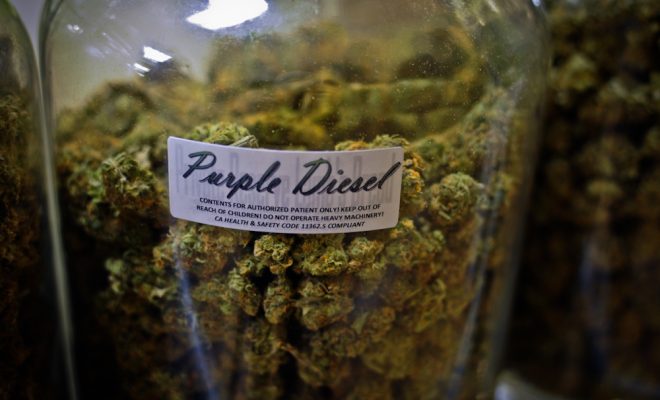 Image Courtesy of Dank Depot; License: (CC BY 2.0)
Image Courtesy of Dank Depot; License: (CC BY 2.0)
Cannabis in America
How Will Marijuana Be Marketed if it’s Legalized in California?
In the weeks leading up to November 8, America’s attention remains squarely on the presidential race. But Election Day will bring scores of ballot measures to voters across all 50 states as well. In nine states, voters will be weighing in on legalizing marijuana in some form, either medically or recreationally.
Early polls in California–one of states to include a full-tilt legalization measure on its ballot–indicate that it will join the handful of states where marijuana is currently legal in all forms. Opponents and proponents of the California measure, Proposition 64, have their sights set on the next battlefield once legalization becomes a reality: marketing.
Proposition 64, or the Adult Use of Marijuana Act, contains a number of provisions aimed at ensuring marijuana will be safely marketed. These include:
- All marijuana product labels must include a government warning that includes the phrase, “please use extreme caution.”
- Billboards can portray marijuana advertisements, but must be located further than 1,000 feet away from a day care, school, playground, or youth center.
But even with the safe-marketing measures baked into Prop. 64, some opponents of legalization remain worried that as the drug is legalized, companies will commit to mass marketing strategies aimed at turning a profit.
Once cannabis is legalized in California, opponents see a period of experimentation, as brands are weeded out and the big players emerge, perhaps paving a landscape similar to Big Tobacco. This would include a landscape consisting of mass marketing campaigns fueled by a few dominant companies.
Prop. 64 contains additional stipulations aimed at preventing a monopolistic environment. For the first five years of legalization, producers are only allowed to cultivate up to 22,000 square feet.
Though Prop. 64 contains measures safeguarding against marketing, and especially marketing to children, the federal classification of marijuana as an illegal substance and a Schedule I drug will prevent marijuana from being marketed on television or radio in California, even if the measure passes on Election Day.
In an interview with the San Francisco Chronicle, California’s Lieutenant Governor Gavin Newsom, a legalization supporter, noted how federal law will block many marketing efforts at the state level for the time being. He said:
Oregon, Washington, Alaska, and Colorado have legalized cannabis for recreational use for adults. None of those markets have any advertising, because [marijuana] is federally prohibited. You cannot legally advertise [marijuana] on our airwaves, radio, or TV.
Brands, he said, will design their products to appeal to people. “But targeting our kids,” Newsom said. “Absolutely not. And we’re going to keep an eye on that, and we’ve got to hold ourselves accountable.”








Comments